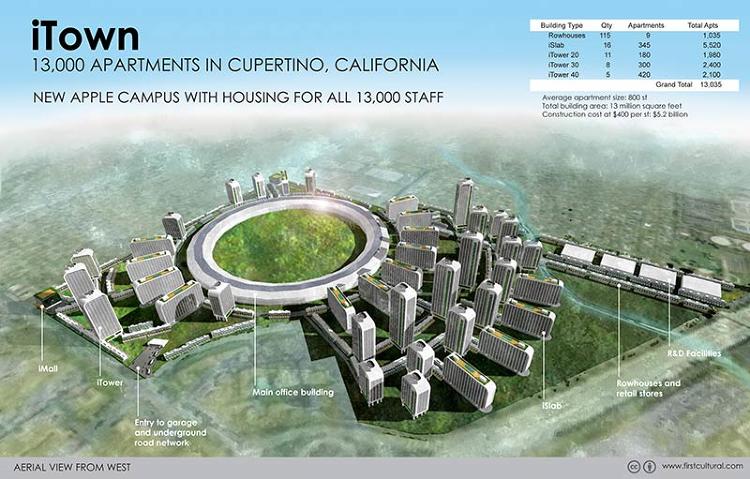Since late 2015, I’ve been using Medium for occasional posts/essays. See tmccormick.medium.com.
Category Archives: Uncategorized
Another City is Possible: on overcoming housing-crises and resignation
[originally posted to discussion list of SFBARF, San Francisco Bay Area Renters Federation]. Today’s Vice article on SF housing (“Nobody Can Figure Out How to Fix San Francisco’s Housing Crisis” by George McIntire) does a good job articulating some different points of view. Including, I was glad to see, prominent Berkeley regional/urban economist Enrico Moretti, who bluntly summarizes expert opinion & evidence on housing markets thus:
“a growing and homogenous body of academic research…points exactly to the opposite [of the pro-moratorium argument]. If you allow market-rate housing in a city you experience lower increases in rent.”
On the other hand, I am somewhat disappointed to see a familiar, tech-vs-the-city, xenophobic-tending frame, ie the primary causal factor described as: “The city has been overrun by young tech workers… transplants.” ..as if job and economic growth, new in investment and venture formation, and the attraction of talented, aspiring people aren’t generally signs of a flourishing, high-opportunity, open city — and key aspects of what most cities in the world are aspiring to.
As if the city is merely a victim of this tremendous prosperity, and powerless to use its great wealth to address attendant problems and shape itself. As if you can attribute this situation just to newcomers, without reference to, say, the immense tangle of property/tax/land-use restrictions and housing/transport underinvestment accumulated over decades.
review of Open Access Humanities by Martin Eve
 If you’re new to the topic of “open access” — “unrestricted online access to scholarly research” — or you want a broad perspective, I’d suggest instead of this book the fairly good Wikipedia entry on “Open Access,” from which the above definition comes. After that, John Willinsky’s The Access Principle, 2006, available free from MIT Press, which focuses on the key idea, of expanding access to knowledge creation and use, by various models in different contexts globally. (if you do want to read Open Access and the Humanities, get the complete Kindle, ePub, or PDF versions free at Unglue.it or Internet Archive, not Cambridge Books Online’s amusingly not-with-the-program collection of 16 separate PDF files).
If you’re new to the topic of “open access” — “unrestricted online access to scholarly research” — or you want a broad perspective, I’d suggest instead of this book the fairly good Wikipedia entry on “Open Access,” from which the above definition comes. After that, John Willinsky’s The Access Principle, 2006, available free from MIT Press, which focuses on the key idea, of expanding access to knowledge creation and use, by various models in different contexts globally. (if you do want to read Open Access and the Humanities, get the complete Kindle, ePub, or PDF versions free at Unglue.it or Internet Archive, not Cambridge Books Online’s amusingly not-with-the-program collection of 16 separate PDF files).
Martin Eve’s recent Open Access and the Humanities, by contrast to the above, has a narrower and somewhat polemical purpose: to review current debates among mainly UK (some US + EU) academics over alternate ways to pay for and give access to their scholarly articles or monographs in humanities disciplines, and to advocate a particular (and controversial) model of academics giving away all copyright-based rights to their work except for attribution. The author is a lecturer at Lincoln University, UK, and a founder of a new publishing venture, Open Library of Humanities, of which I was a co-founder.
Reshape Silicon Valley: conversations and proposals for housing
Recently there seems to be a bit of a crescendo in the flood of discussion about the Bay Area’s housing crisis. Here are four intersecting threads I saw or joined on Twitter, leading to (#4) a proposal for a “Reshape Silicon Valley” public event & envisioning workshop. Featuring, by section:
- Startup incubator heads & venture capitalists
- Urban planners & transit advocate
- Journalists & filmmaker
- Entrepreneurs & technologists
1. Startup incubators, venture capitalist:
On Nov 3, Sam Altman, President of leading startup incubator Y Combinator, based in Mountain View:
it's so unbelievably frustrating how hard it is to get lots of new housing built in the bay area. this one thing would solve so many probs.
— Sam Altman (@sama) November 4, 2014
there were many responses to this tweet, including creative ideas such as
https://twitter.com/jfornear/status/529443882212155394
.@willsewell_ cynical opinion–homeowners don't want too see their home values decrease, and non-homeowners don't vote enough
— Sam Altman (@sama) November 4, 2014
[note: Altman’s observation is essentially what in urban/planning/housing studies is commonly described as the “homevoter hypothesis” or “homeowner hypothesis,” as described in The Homevoter Hypothesis by William A. Fischel, 2002.]
Can we turn news articles into action? proposal for civic-ideas markets/accelerators
 this is an idea I’ve been mulling and discussing with people for a while. A recent editorial by Greg Bauman, editor of Silicon Valley Business Journal, “Leaders need to step in on housing crisis,” prompted me to write the below comment describing the civic-ideas market/accelerator concept. Reposting here to add links and share.
this is an idea I’ve been mulling and discussing with people for a while. A recent editorial by Greg Bauman, editor of Silicon Valley Business Journal, “Leaders need to step in on housing crisis,” prompted me to write the below comment describing the civic-ideas market/accelerator concept. Reposting here to add links and share.
> Policymakers should convene immediately to coordinate
> an emergency regional response
Dense new market-rate development near transit is an excellent idea. Instead of an emergency convening of all officials around just one idea, though, how about a convening and open/ongoing forum to propose, evaluate, and refine/develop a range of solutions?
A newspaper is in a good position to convene and develop broad solution ideas, as has been demonstrated beautifully by San Francisco Public Press’ “Housing Solutions” initiative and conference recently. This showcases a wide array of immediate, medium- and long-term proposals (including, full disclosure, my project for modular redeployable housing, Houslets). Some of these have the potential for impact much faster than new dense development would: for example, temporary rezoning of vacant land, or facilitation of accessory dwelling units and backyard cottages.
In the spirit of being business- and solution- and Silicon Valley-like — when in Rome!.. — how might we build an ideas/proposals market and accelerator, like a civic AngelList, to discover and build initiatives from idea to proposal to enactment? The project might be to develop an existing or new idea, and the product a professional-grade policy brief, a legislative bill or campaign, startup, social enterprise, city/county government initiative, grant application, funding drive, etc. Call it IdeaList, or CivicList, perhaps.
I imagine a platform which, like AngelList does for tech startups, allows founders/proposers and project ideas to be registered, linked, and combined; and perhaps good proposals incented by voting, micro-seed funding, ownership stakes, etc. You could think of it as bridging the gap between older media, still focused on one-off “articles” and exposition separated from action, vs the accelerator/venture-capital system which turns those ideas into real projects and makes the money. (also, hires some of the best / most innovative ideas people away from journalism, as at Sequoia and Andreessen Horowitz lately).
There are many prior/existing deliberation and idea-market models/platforms to base on or learn from, such as UC Berkeley’s Opinion Space, California Report Card, Civinomics, Tumml, X-Prize-type bounty models, or ReframeIt (which just launched a deliberative policy project with Knight Foundation, TechCrunch and Silicon Valley Community Foundation). Perhaps SVBJ parent company American City Business Journals might consider prototyping such an idea market here, in view of potentially scaling/sharing it with its other 40 properties.
Reframe it. Scale it. CivicList? Hey, you never know, it worked for CraigsList.
—
Tim McCormick
Palo Alto
@tmccormick tjm.org / @houslets houslets.com
Disrupting Silicon Valley Housing and Homelessness
storify of and notes on discussion July 12-17 about new approaches to affordable and transit-served housing in Silicon Valley:
Facebooks's HQ now fully auto-dependent, but sits on disused rail line to #Caltrain, East Bay, & space for housing pic.twitter.com/yp69mE5G9K
— Tim McCormick (@tmccormick) July 12, 2014
@tmccormick FB could build mixed-use towers to include lux housing, reducing need for transit (all tech giants need to think skyward)
— Brian Davis (@svsfo) July 12, 2014
Brian Davis works for Google in Business Development.
@svsfo phaps.. I was thinking of something exploratory & nearer-term, relocatable modular live/work units deployed by RR lines, eg @houslets
— Tim McCormick (@tmccormick) July 12, 2014
@svsfo I & @houslets proj looking to connect w/FB/Google/etc employees & groups who might be intrstd to explore new housing/facility ideas.
— Tim McCormick (@tmccormick) July 12, 2014
@tmccormick @houslets great and will learn more; spoke to a couple startups tonight trying to move to SV and housing is their top obstacle
— Brian Davis (@svsfo) July 12, 2014


